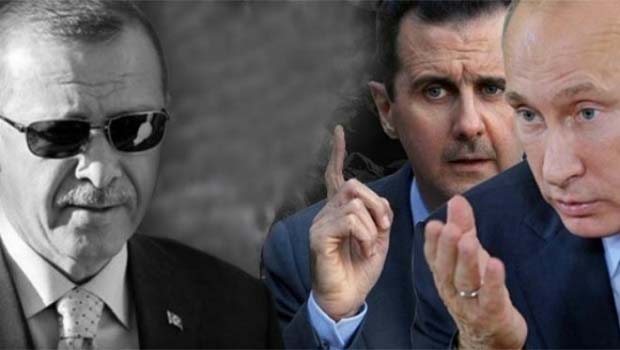The Russian-Assad operation in Idlib, despite its predictability (we predicted it several years ago, given the available information, for which we were accused of defeatism, vultureism, etc.), seems to have led to strategic shifts in Turkish public opinion. And we are not just talking about the change in mass sentiment toward Russia, which we wrote about recently.
Equally significant is the current reinterpretation of the issue of Syrian sovereignty as such, which represents a shift from the course taken around 2016. Recall that at that time there was a shift from the policy of neo-Ottomanism pursued under Prime Minister Ahmet Davutoglu, which consisted of supporting Sunni forces in Syria and Iraq, to a rhetoric of preserving the territorial integrity of these states.
This coincided with a new course in Turkey itself, where the reputation of the Islamist party led by Recep Tayyip Erdogan joined forces with newer opponents in the form of radical nationalist Devlet Bahceli, resulting in the emergence of the phenomenon of “Islamic Kemalism”. This was accompanied by a change in foreign policy. In particular, in the conflict with Iraqi Kurdistan over its plans to hold a referendum on independence from the Baghdad regime, Ankara sided with the latter, which was criticized by Davutoglu, who was then dismissed.
All this, let us recall, was accompanied by a new alliance with Iran and Russia, which was supported by broad sections of the Turkish establishment and society. But now that Erdogan and Turkish public opinion are talking about problems in relations with Russia, it seems to be time to reassess such an unquestionable benchmark of Turkish foreign policy as “the territorial integrity of Syria”. At least in its generally accepted understanding…
In this sense, a recent article by Ibrahim Kalin, editor-in-chief of the virulently pro-Erdogan publication “Yeni Safak,” which serves as a platform for expressing the semi-official (slightly more open than official) views of Turkey’s current ruling circles, is instructive (https://www.yenisafak.com/en/columns/ibrahimkaragul/the-duchy-of-damascus-or-latakia-government-which-syria-are-you-talking-about-are-you-talking-of-a-syria-of-which-two-thirds-of-the-population-have-been-disregarded-how-can-you-call-turkey-an-invader-with-russia-us-israel-and-iran-in-the-picture-those-firing-from-within-cant-lecture-this-country-2047336).
In this article, he writes that the territorial integrity of Syria, to which the Assad regime and its external patrons and allies always appeal, has long since lost its real content. Moreover, he extends this thesis to the concept of “Syria” used by these circles. “Some circles have pointed their weapons at this country and speak of the territorial integrity of Syria. Allow me to ask: which Syria? And who are you calling Syria? Bashar al-Assad and his family? The one around Latakia? (referring to the areas inhabited mainly by Alawites – note by GI). What about the people of Aleppo, Hama and other cities? Has anyone asked the millions of Syrians what they think, what the majority of the country’s population thinks? More than a third of the population is displaced and has no state of its own. Who is all this being done for?” Karagul asks.
Furthermore, in his debate with those who call Turkey an invader in Syria, he asks a rhetorical question: “What are Russia and Iran doing there? Regarding Turkey’s role, he writes: “We are defending Syria, not the Duchy of Damascus and Latakia.
Thus, as can be inferred from the words of a long-time Erdogan apologist, appeals to “Syria” and its territorial integrity are meaningless today. “We will be able to talk about Syria when millions of people can return [to their homes],” Karagul concludes, implying that Syria is not what it is today, but what is (perhaps) yet to be created.
This ideological shift could have long-term consequences, because it is accompanied by statements that the Astana process, which raised high hopes (we allow ourselves a sarcastic question here – seriously? By whom?) has completely failed. And if you combine the two, it follows that the hopes for “national reconciliation” in Syria and its reintegration through political means have not been realized either.
To be consistent, this should lead to the recognition that for Turkey, the Syria it supports is only the part controlled by the forces allied with the Syrian National Army (SNA).
Therefore, both the legitimate government and Turkey’s official partner on the Syrian side should recognize (and should have already recognized!) the government of this free Syria by signing agreements on mutual assistance and cooperation, as was done with the Government of National Accord in Libya.
Will the Turkish establishment go along with this, at least after the long-predicted catastrophe in Idlib, or will it prefer to continue embalming the corpse of the Astana process? We’ll live and see…

